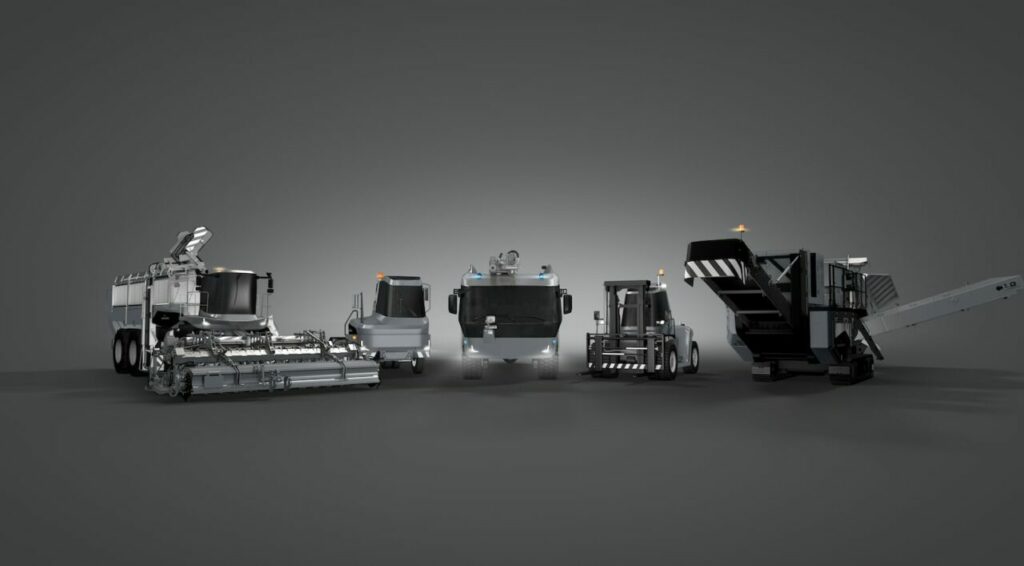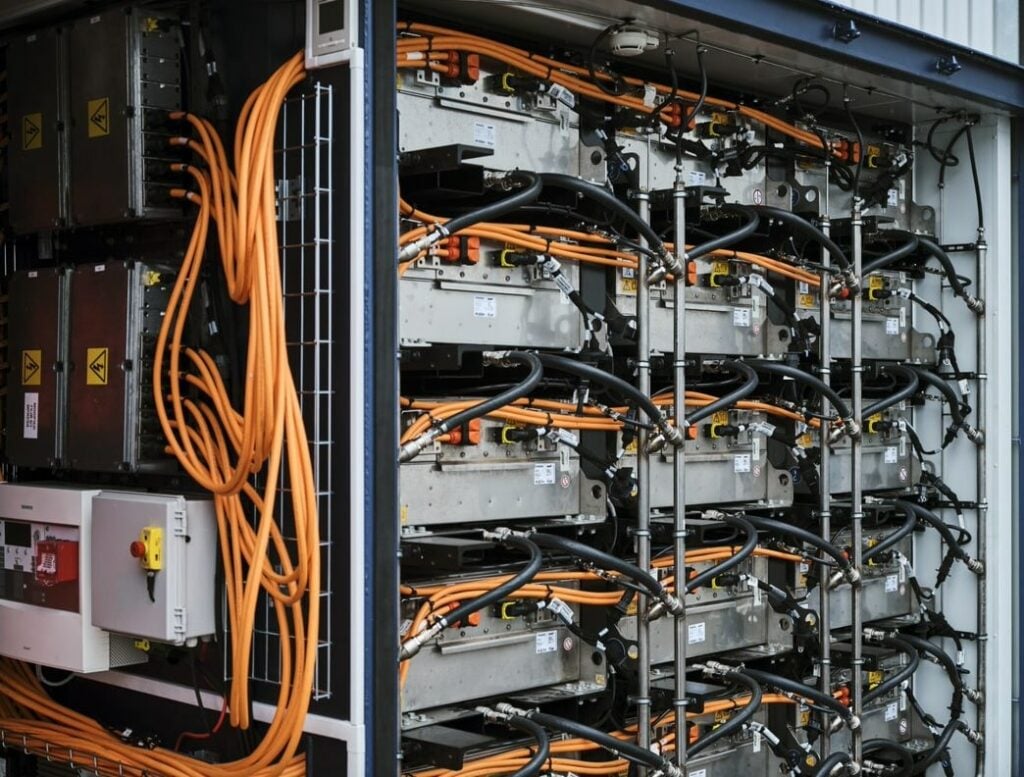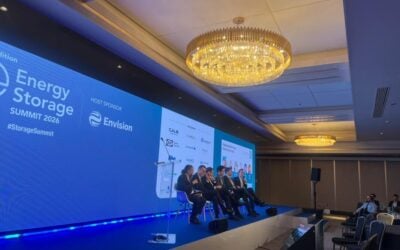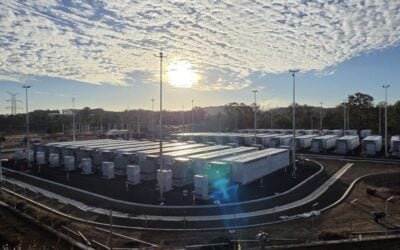
A senior executive from the power solutions arm of manufacturing firm Volvo Group, Volvo Penta, talked Energy-Storage.news through its recent entry into the BESS market.
As covered here, Volvo Penta launched a battery energy storage system (BESS) sub-system solution in March this year. The product is a partial BESS product, which lacks a SCADA or energy management system (EMS) and container design, which the firm is selling to OEMs and system integrators to containerise and deploy.
Volvo Penta provides power solutions to a range of industries, notably engines and other power components to marine, mining, construction, power generation and also large EVs. Its BESS solution uses the battery technology it has developed in-house for those solutions.
“We have created the infrastructure for producing batteries in-house, so we have the opportunity to utilise them and bring volumes to a wider variety of applications,” VP Product Management for its Industrial Business Prabhakaran Sundaramurthi told Energy-Storage.news.
Try Premium for just $1
- Full premium access for the first month at only $1
- Converts to an annual rate after 30 days unless cancelled
- Cancel anytime during the trial period
Premium Benefits
- Expert industry analysis and interviews
- Digital access to PV Tech Power journal
- Exclusive event discounts
Or get the full Premium subscription right away
Or continue reading this article for free
The solution uses both new and second life batteries, he added, initially just the former but the company has plans to secure second life cells and put them back into operation. “It will take a while before we get a reasonable amount of second life batteries from the market. But we have a responsibility to ensure circularity, so it will be part of our business model.”
We asked Sundaramurthi what advantages Volvo Penta’s existing activity gives it compared to existing products and players in the BESS market.

“The biggest advantage that we bring is that our solutions are heavy duty in nature and we focus a lot on the safety aspects, ensuring global safety for the whole system,” he said.
“We also bring lots of efficiency, power density and a continuous evolution of the total solution as such. You can build a lot of features based on our system and add value to the end-customer.”
He claimed this gives its batteries a high charging and discharging rate, which would help with, for instance, ‘block loading’ when there is a sudden loss of grid. Its BESS could take a very high load in a short space of time and stabilise the system.
Sundaramurthi declined to provide any figures on how much of its BESS sub-system has been deployed or could be deployed in the coming years.
It recently tied up with Utility Innovation Group (UIG) which will deploy BESS projects across a range of market segments using Penta’s sub-system. UIG president Derek Tugwell described Volvo Group’s e-mobility equipment architecture as “…incredibly energy-dense”. Penta then acquired a minority stake in UIG, last month (April).
Penta does not produce its own battery cells, instead securing them from Tier 1 supplier Samsung SDI which it then packages into modules and packs. Volvo Group has plans to set up a gigafactory in Sweden to build cells to support its aim for 35% of its products to be electric by 2030.
Volvo Penta had 2022 revenues of 18.1 billion SEK (US$1.6 billion), just under 4% of the Group’s total of 473.5 billion SEK. The bulk (86%) of the Group’s sales are from trucks and construction equipment.
Volvo Group is a separate entity from consumer vehicle company Volvo Cars, which was sold by the group in the 1990s and re-listed on the Stockholm Nasdaq over two decades later, in 2021, by then-majority owner Zhejiang Geely Holding Group.
The company’s other subsidiaries have intersected with the second life energy storage sector too. In 2020, Volvo Buses tied up with BatteryLoop, part of big recycling firm Stena, while last year Volvo Energy invested in UK-based second life firm Connected Energy.





